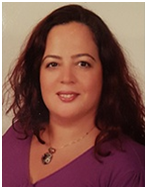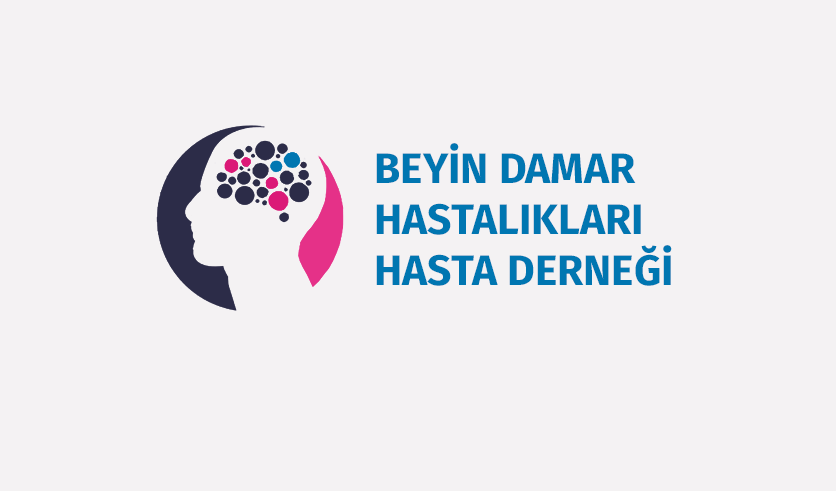 “In our country, our patients are facing several problems after stroke. The number of physical therapy units is adequate, however, we should pay extra attention for the subjects such as lack of training and methods, inadequate speech rehabilitation therapy, lack of environmental physical conditions for stroke cases, and often overlooked dementia and depression after stroke” said Füsun Mayda Domaç, Assoc. Prof, MD, Msc and Vice President of BEYINDER, Turkish Stroke Support Organisation.
“In our country, our patients are facing several problems after stroke. The number of physical therapy units is adequate, however, we should pay extra attention for the subjects such as lack of training and methods, inadequate speech rehabilitation therapy, lack of environmental physical conditions for stroke cases, and often overlooked dementia and depression after stroke” said Füsun Mayda Domaç, Assoc. Prof, MD, Msc and Vice President of BEYINDER, Turkish Stroke Support Organisation.
SAFE: What is one issue related to the life after stroke in your country that you think needs special attention?
FMD: One of the most noteworthy issues is the establishment of a number of rehabilitation centers by government incentives in Turkey. Although the physical facilities and numbers of the centers are adequate, the lack of physical therapists and physiotherapists, who are well equipped for neurorehabilitation and especially for stroke rehabilitation, is quite lacking. The number of physical therapy sessions that the Ministry of Health has provided free of charge in patients after stroke is insufficient. Although the physicians are willing to start treatment in patients in the early period, the number of free sessions and an inadequate number of equipped personnel negatively affect the success rates. In our country, physical factors create difficulties for the cases of stroke. It is extremely important to reintroduce stroke survivors to an active, disability-free life with an intensive rehabilitation program.
Other important issues we have come across in most stroke survivors are the isolation of social and work environment, fear of not recovering, and psychiatric problems such as depression and anxiety. Besides, vascular dementia can develop due to localization and severity of stroke. However, because we need to examine a large number of patients in a short time due to health policies in outpatient clinics, urgent and important complaints are considered at the forefront and psychiatric cognitive problems can be ignored. This situation complicates and delays clinical recovery in patients.
SAFE: What would be the solution, i.e. what is your organisation’s position regarding this issue?
FMD: The short duration of rehabilitation treatment and lack of adequate qualified personnel negatively affect the healing process even though the physical therapy centers are sufficient. In this context, in the neurorehabilitation, it will be helpful to prepare a training CD of physical therapy applications for stroke which explains practices in detail. In addition, neurology and physical therapy branches need to come together and exchange information on neurorehabilitation with joint meetings. Training sets can be prepared in cooperation with the Ministry of Health, and detailed brochures about hints and issues to be considered during physical therapy can be prepared and distributed. The Ministry of Health may be asked to supervise physical therapy centers in more detail and to support fully-equipped rehabilitation centers for stroke rehabilitation. The number of free service periods and sessions can be increased by discussing the necessity of having a long-term and intensive treatment protocol after stroke with the Ministry of Health. Beyinder works intensively on all these solutions.
Due to the health policies in our country, there is not enough time to examine stroke patients in the outpatient clinics. In addition, it is not easy to make detailed evaluations except for the basic complaints. In this respect, assessment forms for depression, anxiety, and cognitive problems can be prepared and asked to fill it with the help of a patient and/or their relatives before their visit and these forms can be evaluated guickly in the outpatient clinics. Assessment forms should be developed and implemented easy-to-read taking into account the health literacy of patients so that they can fill forms on their own. In order to raise awareness among neurologists, information brochures about post-stroke psychiatric and cognitive situations can be prepared and distributed.
SAFE: Please tell us more about your organisation.
FMD: Stroke patients are not alone anymore in Turkey. “BEYİNDER” which is Turkish cerebrovascular diseases patients’ society was established in August 2017 in Istanbul. BEYİNDER is a non-profit, national society for stroke patients, their families, caregivers and also for health professionals. Our aim is to provide help and support for all stroke patients in Turkey and provide public education by accurate information about cerebrovascular diseases.
Our society has a website (link: http://www.beyinder.org/). The web site of our society provides information about our society, understandable information about clinical signs and symptoms, primary and secondary prevention, therapy and rehabilitation of stroke for patients and care givers, information about communication and news about stroke in media. Our society also has several social media accounts including Facebook, Instagram and twitter in order to make people aware of the society and its website.
Official journal of the association began publishing in 2018 and the 4th issue is on the way. Editor of the journal is Prof. Uludüz. The journal provides general information on vascular health of brain for patients. We also send journal to hospitals in order to give patients and relatives at out-patient or in-patient clinics. The online version of our journal is also available on the website.





